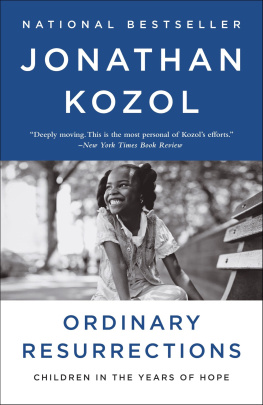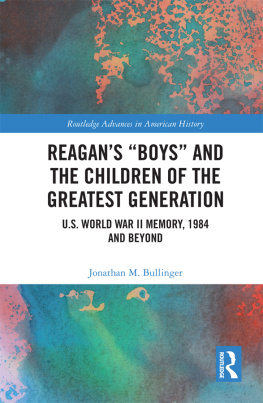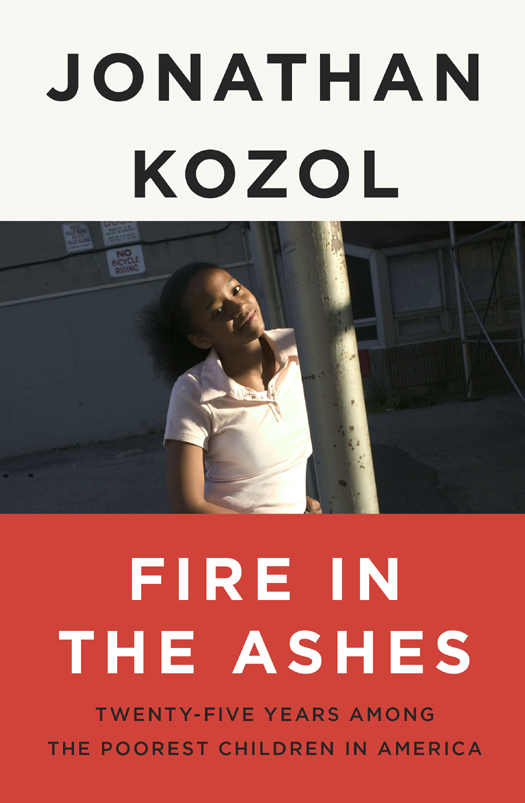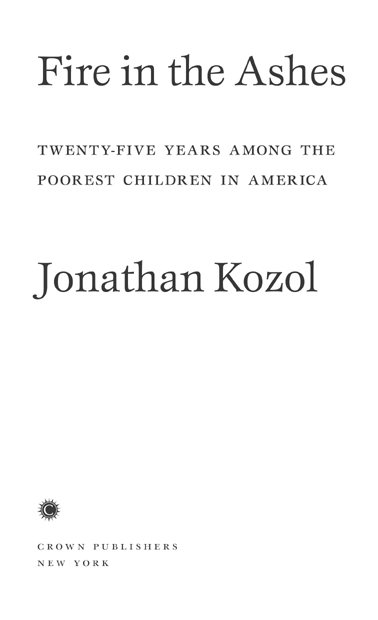Jonathan Kozol - Fire in the Ashes: Twenty-Five Years Among the Poorest Children in America
Here you can read online Jonathan Kozol - Fire in the Ashes: Twenty-Five Years Among the Poorest Children in America full text of the book (entire story) in english for free. Download pdf and epub, get meaning, cover and reviews about this ebook. year: 2012, publisher: Crown, genre: Detective and thriller. Description of the work, (preface) as well as reviews are available. Best literature library LitArk.com created for fans of good reading and offers a wide selection of genres:
Romance novel
Science fiction
Adventure
Detective
Science
History
Home and family
Prose
Art
Politics
Computer
Non-fiction
Religion
Business
Children
Humor
Choose a favorite category and find really read worthwhile books. Enjoy immersion in the world of imagination, feel the emotions of the characters or learn something new for yourself, make an fascinating discovery.

- Book:Fire in the Ashes: Twenty-Five Years Among the Poorest Children in America
- Author:
- Publisher:Crown
- Genre:
- Year:2012
- Rating:4 / 5
- Favourites:Add to favourites
- Your mark:
Fire in the Ashes: Twenty-Five Years Among the Poorest Children in America: summary, description and annotation
We offer to read an annotation, description, summary or preface (depends on what the author of the book "Fire in the Ashes: Twenty-Five Years Among the Poorest Children in America" wrote himself). If you haven't found the necessary information about the book — write in the comments, we will try to find it.
In this powerful and culminating work about a group of inner-city children he has known for many years, Jonathan Kozol returns to the scene of his prize-winning books Rachel and Her Children and Amazing Grace, and to the children he has vividly portrayed, to share with us their fascinating journeys and unexpected victories as they grow into adulthood.
For nearly fifty years Jonathan has pricked the conscience of his readers by laying bare the savage inequalities inflicted upon children for no reason but the accident of being born to poverty within a wealthy nation. A winner of the National Book Award, the Robert F. Kennedy Book Award, and countless other honors, he has persistently crossed the lines of class and race, first as a teacher, then as the author of tender and heart-breaking books about the children he has called the outcasts of our nations ingenuity. But Jonathan is not a distant and detached reporter. His own life has been radically transformed by the children who have trusted and befriended him.
Never has this intimate acquaintance with his subjects been more apparent, or more stirring, than in Fire in the Ashes, as Jonathan tells the stories of young men and women who have come of age in one of the most destitute communities of the United States. Some of them never do recover from the battering they undergo in their early years, but many more battle back with fierce and, often, jubilant determination to overcome the formidable obstacles they face. As we watch these glorious children grow into the fullness of a healthy and contributive maturity, they ignite a flame of hope, not only for themselves, but for our society.
The urgent issues that confront our urban schools a devastating race-gap, a pathological regime of obsessive testing and drilling students for exams instead of giving them the rich curriculum that excites a love of learning are interwoven through these stories. Why certain children rise above it all, graduate from high school and do well in college, while others are defeated by the time they enter adolescence, lies at the essence of this work.
Jonathan Kozol is the author of Death at an Early Age, Savage Inequalities, and other books on children and their education. He has been called todays most eloquent spokesman for Americas disenfranchised. But he believes young people speak most eloquently for themselves; and in this book, so full of the vitality and spontaneity of youth, we hear their testimony.
Jonathan Kozol: author's other books
Who wrote Fire in the Ashes: Twenty-Five Years Among the Poorest Children in America? Find out the surname, the name of the author of the book and a list of all author's works by series.






